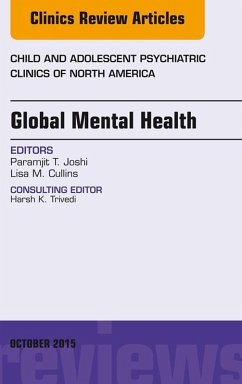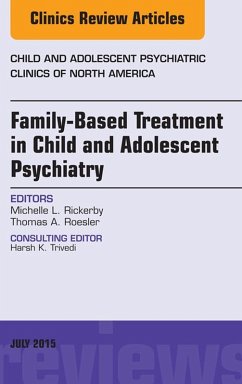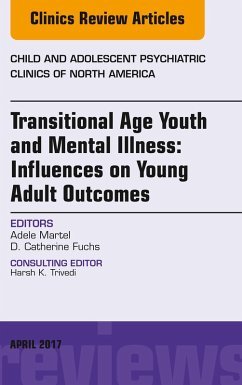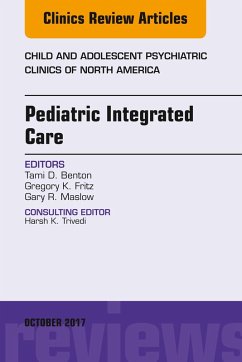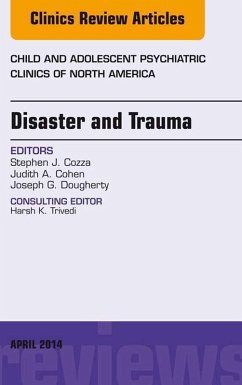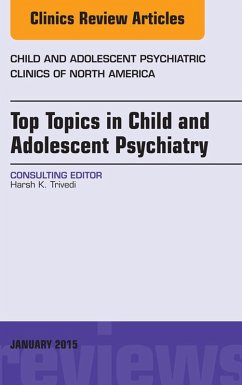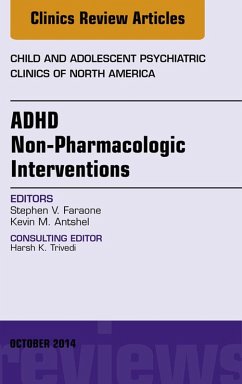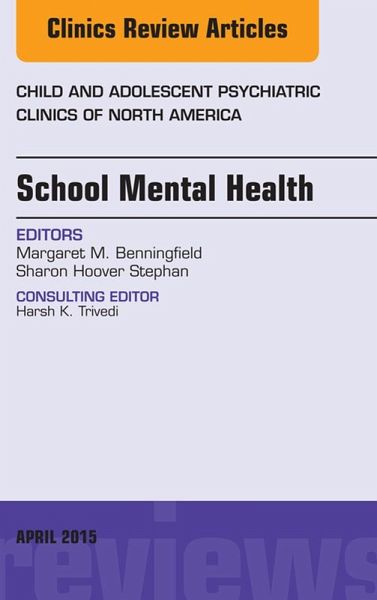
School Mental Health, An Issue of Child and Adolescent Psychiatric Clinics of North America (eBook, ePUB)
Versandkostenfrei!
Sofort per Download lieferbar
48,95 €
inkl. MwSt.
Weitere Ausgaben:

PAYBACK Punkte
24 °P sammeln!
This publication promotes school based mental health services as a means for increasing access to care and for early intervention.There are 3 levels of intervention in school-based mental health:1. Universal promotion/prevention: Implementing whole-school approaches (including training teachers and administrators) to ensure and foster wellness.2. Targeted prevention: Providing prevention services for youth at-risk of developing mental health problems.3. Indicated services: Providing assessment and direct care for youth with identified mental health needs.The approach of this Issue presents cur...
This publication promotes school based mental health services as a means for increasing access to care and for early intervention.
There are 3 levels of intervention in school-based mental health:
1. Universal promotion/prevention: Implementing whole-school approaches (including training teachers and administrators) to ensure and foster wellness.
2. Targeted prevention: Providing prevention services for youth at-risk of developing mental health problems.
3. Indicated services: Providing assessment and direct care for youth with identified mental health needs.
The approach of this Issue presents current evidence-based practice in schools and review of schools as a vital part of systems of care for youth. In addition to psychiatrists, this issue addresses collaboration with families, educators, administrators, social workers, counselors and psychologists.
The Editors leading this issue are from Vanderbilt University and University of Maryland. Both Vanderbilt and Maryland have well-established clinical programs that provide a full continuum of mental health services, including "indicated services" to serve youth with mental health diagnoses (i.e., severe psychiatric disorders). Psychiatrists are part of the treatment team, and work directly in the school or provide consultation (often via telehealth technologies). Given that family engagement is a major part of making therapies work effectively, partnering with families is a critical part of the treatment process.
There are 3 levels of intervention in school-based mental health:
1. Universal promotion/prevention: Implementing whole-school approaches (including training teachers and administrators) to ensure and foster wellness.
2. Targeted prevention: Providing prevention services for youth at-risk of developing mental health problems.
3. Indicated services: Providing assessment and direct care for youth with identified mental health needs.
The approach of this Issue presents current evidence-based practice in schools and review of schools as a vital part of systems of care for youth. In addition to psychiatrists, this issue addresses collaboration with families, educators, administrators, social workers, counselors and psychologists.
The Editors leading this issue are from Vanderbilt University and University of Maryland. Both Vanderbilt and Maryland have well-established clinical programs that provide a full continuum of mental health services, including "indicated services" to serve youth with mental health diagnoses (i.e., severe psychiatric disorders). Psychiatrists are part of the treatment team, and work directly in the school or provide consultation (often via telehealth technologies). Given that family engagement is a major part of making therapies work effectively, partnering with families is a critical part of the treatment process.
Dieser Download kann aus rechtlichen Gründen nur mit Rechnungsadresse in A, B, BG, CY, CZ, D, DK, EW, E, FIN, F, GR, HR, H, IRL, I, LT, L, LR, M, NL, PL, P, R, S, SLO, SK ausgeliefert werden.





